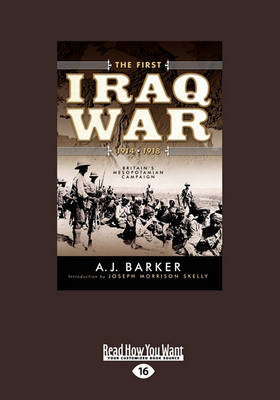Turkey's entry into World War I on 29 October 1914 immediately prompted Britain to open a new military front in the remote Ottoman province of Mesopotamia to protect their oil interests, in particular their naval oil supplies. British and Indian troops, sent to the Persian Gulf in early November to protect those interests at Abadan, made rapid progress inland against weak Turkish resistance. In less than a month, they had occupied the towns of Basra and Kurna, capturing more than 1,000 Turkish prisoners and losing just 65 of their own men.
Despite the unforgiving climate, British forces continued to march steadily up the River Tigris in 1915. By 28 September, under the leadership of General Charles Townshend, they had taken the town of Kut-al-Amara just 120 miles south of Mesopotamia's major city, Baghdad. However, they faced a setback at Kut-al-Amara, when reinforced Turkish troops ambushed Townshend's forces and overthrew them. A bitter campaign ensued with many casualties on both sides.
Kut-al-Amara was finally recaptured on 24 February 1918, and on 11 March, British troops finally entered Baghdad. When the war with Turkey ended on 30 October 1918, British forces in Mesopotamia had reached as far north as the oil-rich district of Mosul, captured on 3 November.
A. J. Barker's masterful retelling of the story of Britain's first Iraq war in 1914 is a masterpiece of military history that provides many answers to the endless problems and realities encountered in Iraq since 2003. Prestige and power played a major role then as they still do today.
- ISBN10 145872204X
- ISBN13 9781458722041
- Publish Date 29 November 2010 (first published 1 January 2009)
- Publish Status Unknown
- Publish Country US
- Imprint ReadHowYouWant
- Edition Large type / large print edition
- Format Paperback (US Trade)
- Pages 492
- Language English
